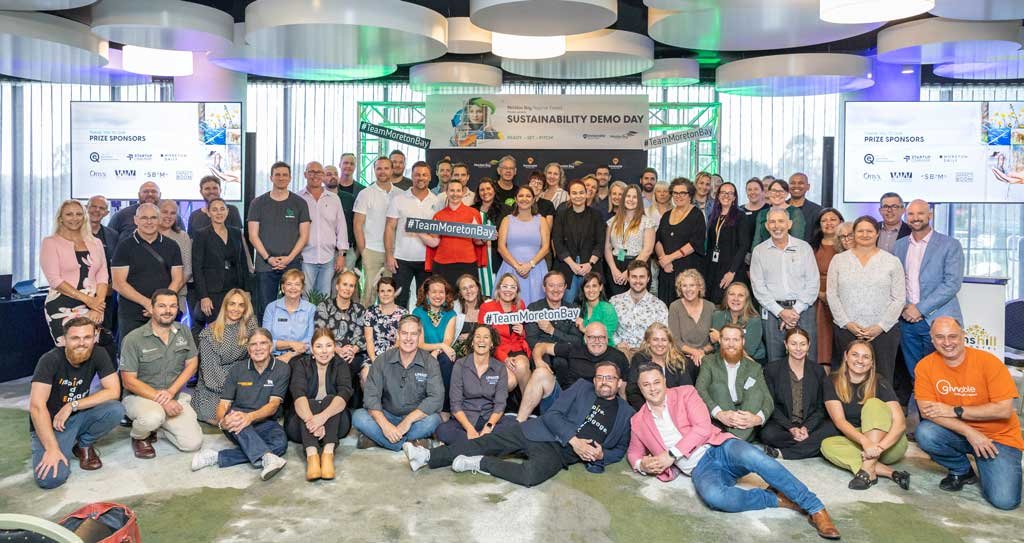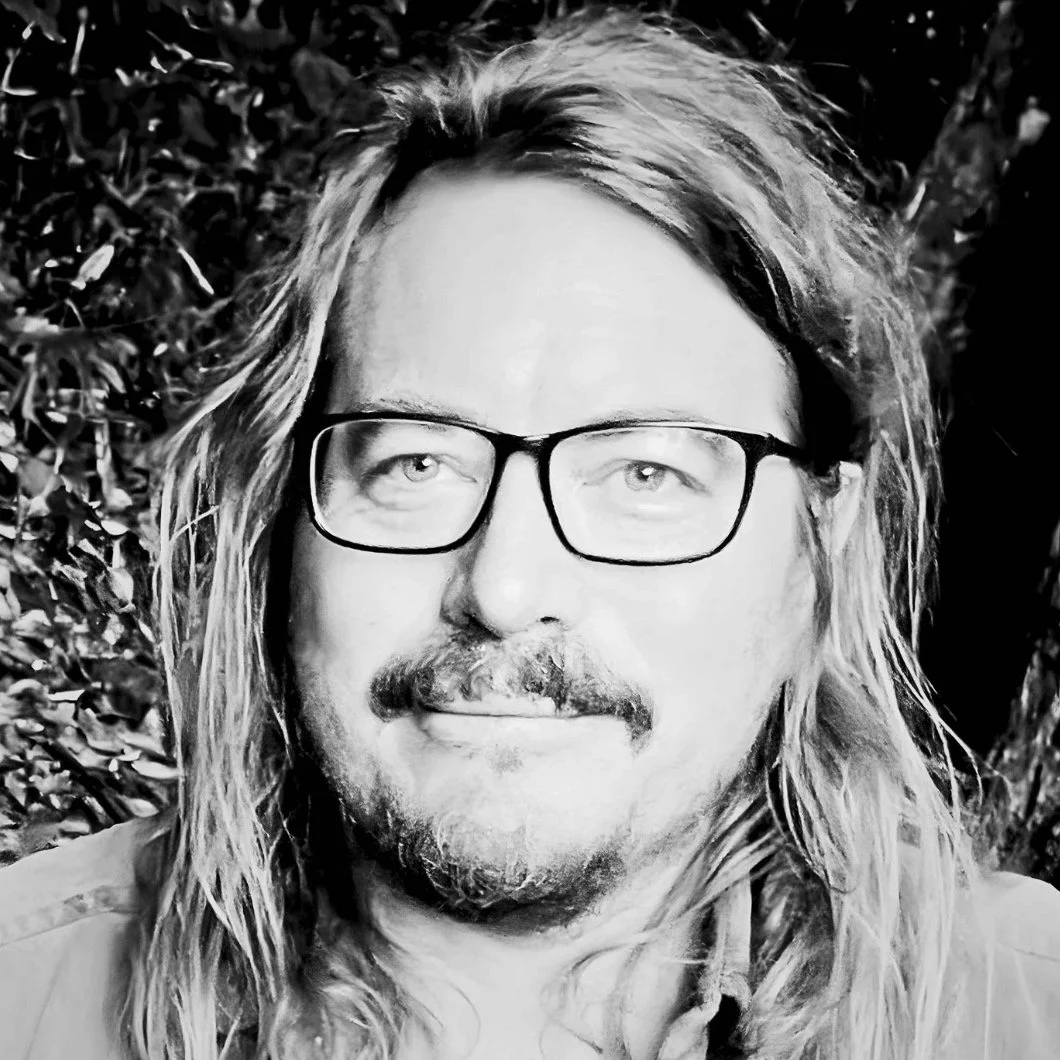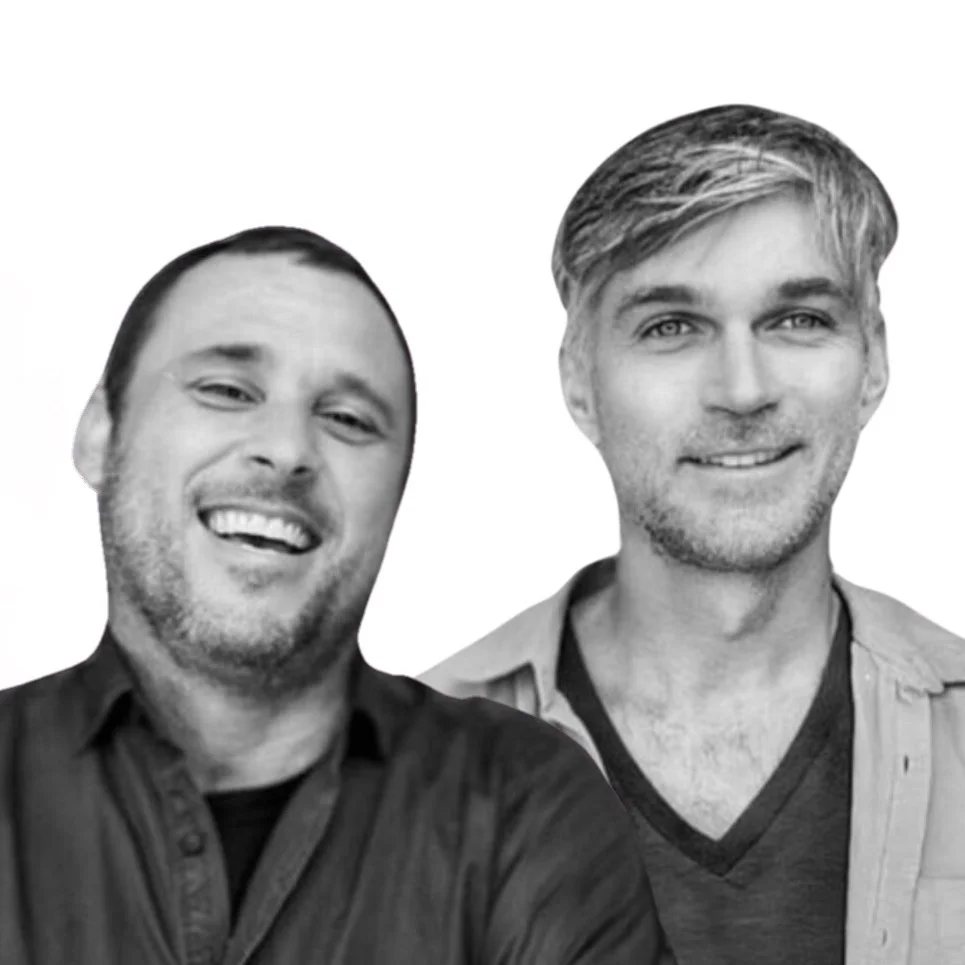Steve Butler On Advancing Regional Business For Good Ecosystems Led By Trust And Collaborative Values
Steve Butler is the Regional Innovation Coordinator of Innovate Moreton Bay, a brand owned and developed by Moreton Bay Region Industry & Tourism (MBRIT) in partnership with State and Local government partners. MBRIT is City of Moreton Bays official economic development partner.
Over the past 6+ years, Steve has actively been involved in building and providing support for City of Moreton Bay’s Innovation Ecosystem following the backing of Advance Queensland Advancing Regional Innovation Program “ARIP”. Passionate about innovation and entrepreneurship, in partnership with State and Local government partners, Steve has worked tirelessly to develop Moreton Bay as a strategic hub of innovation.
Through Steve’s own entrepreneurial journey, he has delivered a large number of projects & events, while providing specialist innovation and growth services to foster the region’s entrepreneurial spirit & culture. More recently, he has worked with Innovate Moreton Bay’s principal partner, City of Moreton Bay, to align with the Regional Economic Development Strategy to drive forward the ambitious goal for Moreton Bay to become a top 10 regional hubs in Australia.
Steve discusses catalysing the regional business for good movement through fostering a dynamic changemaker ecosystem, and how finding your tribe will help you manage stress and prevent burnout from entrepreneurship.
Highlights from the interview (listen to the podcast for full details)
[Tom Allen] - To start off, can you please share a bit about your background and what led to your passion in growing and fostering healthy innovation ecosystems?
[Steve Butler] - Back in the day I had quite a blended experience, predominantly through the hospitality industry. I was focused on people and providing support, whether it be through general hospitality work, cafes, clubs, restaurants, or hotels.
I worked across all different aspects of those industries, and I then got into working in disability services. I was working mainly in community access and helping people who are living with a disability to establish their ideas and find a sense of purpose in their community.
After this, I had a unique opportunity to blend those experiences and become involved with a social enterprise in Caboolture.
We built a custom facility, including a cafe, commercial kitchen and function room where we only employed people with disabilities. After seven years, it was amazing to see the impact we could create using a purpose driven approach; it created a sense of belonging in our community.
During this time, my partner and I had our first two young sons, and then we came up with this idea for a new baby product knowing how messy dinnertime was. We created this new product and did a heap of validation testing. After, we began our entrepreneurial journey of launching a start-up, raising funds, securing IP and going to market.
It was at that time I quickly realised there wasn't much support available for that journey. I was going around seeking that support, and I had to travel some distance being located where we are because there wasn't an innovation ecosystem in the Moreton Bay region at the time. I spent about five years with that start-up learning the hard way many things which I wish I knew back then.
That experience gave me the sense of purpose to realise we can all help each other by sharing our experiences. It's great to know that sometimes all it takes is that one opportunity to give someone your expertise, or to just share the experiences you've been through so they don't have to do it, or so they can build on them. This brings me to my WISE, to help and save people time.
In 2019, I started working with MBRIT, the Moreton Bay Region Industry & Tourism. They were in the process of applying for a grant called the Advancing Regional Innovation Program (ARIP). Once successful, alongside other key stakeholders, I then started as the Regional Innovation Coordinator to deliver what is now the Innovate Moreton Bay program.
I’m happy that I’ve managed to keep that people first movement moving forward. It's nice to know that we've had the privilege of not having to be transactional, it’s about the return on intention over investment.
Not only have I been through some of these challenges myself, but I'm happy to explore and create opportunities for other founders to do the same. Over now six-seven years, it's amazing to see the culture and support of our give first community coming back into play.
As the Regional Innovation Coordinator of Innovate Moreton Bay, can you share more about some of the projects you're involved in?
We have quite a few under our belt these days, and we're always trying new things. As a summary, I’ll share some of the things we've done. One is demonstration days, usually focused within the creative industries and sustainability sectors.
Our innovations days, which are more showcase events, are probably more for the more developed, not so much the start-upside, but more for the scale ups.
We also run early-stage ideation and start-up events such as the Techstars Startup Weekends and more recently, the Innovate Moreton Bay Founders Month, which focused on the start-up methodology and stripping it back to basics like Lean Canvas methodology and prototyping.
There are a heap of different workshops and mentoring programs we've been involved with, and we take Moreton Bay delegations to various innovation festivals. That’s a great way to help them immerse and connect with the vast array of networks we have throughout the wider Queensland and Australian ecosystem.
Amongst that, we've been involved with research projects with the University of Sydney. With them, we are performing a series of case studies on innovative businesses in the city of Moreton Bay.
One activity I've been proud of ever since I started in this role is that we hold monthly social catch ups. The Innovate Moreton Bay monthly social catch up happens on the third Wednesday of every month. We've now been delivering these catchups for over six years, minus one month during the COVID-19 era.
We have a pure return on intention over investment model, where there's no RSVP, or ‘cost to’ programs. You can surround yourself with awesome people and come and go whenever you want.
Over the years, we’ve seen our culture grow, and people are wanting to help each other by providing guidance and a safe platform to be vulnerable, test ideas, and seek feedback.
Where do you see key opportunities to grow the purpose driven business movement and what do you think we need to make business for good business as usual?
That's a great question, because it should be business as usual. Reflecting on this purpose driven movement, it's noticeably grown year by year.
Social enterprise is not too dissimilar to other business models or start-ups; there are a range of different business models that can be adopted. Moving forward, especially with certain businesses seeking investment, we can see the purpose driven movement operating also.
Some of the key opportunities to double down on and leverage would be enhanced education, awareness and storytelling, which is exactly what you guys are doing with your podcast (amongst other things).
Sometimes you just need to hear that one story, that story which gives you a shot of adrenaline to then say, “you know what, I can do this. We can achieve this goal.”
With impact measurement, there's a huge opportunity created by digital technology to enhance transparency and reporting. Then, you can explore collaborative, values aligned partnerships that not only enhance your impact outcomes, but also help you share value from a skill set or resource point of view.
Another avenue to explore moving forward are the financial benefits of investing in purpose driven businesses. We're all living in this world together and we all want to make the world a better place.
There is an opportunity to do this through these amazing, purpose driven businesses and founders. Soon we're going to be able to provide that support and an opportunity to keep the conversation going.
What key traits have you observed in the leaders of social enterprises that stand out and help them effectively push these organisations forward?
Some of the traits I will say might seem cliche, but communication and transparency should be first and foremost. Transparency goes a long way and having excellent communication skills is a bonus. Listening skills are also important to be honest, and being able to take notes is crucial.
Another key trait would be having the ability to embrace new ideas and develop innovative solutions to complex social and environmental issues. However, it's one thing to come up with these new ideas, but it's another thing to execute them.
Being able to embrace and adopt an idea while not being afraid of failing throughout that journey of learning is also important. Having that ability to thrive during the chaos is another huge trait I believe.
Obviously, understanding your pure purpose, leadership style and possessing a deep understanding of your mission within this purpose driven sector is crucial.
Relationship building is another key skill. You must partner up and rely on others, you can't do everything by yourself. The ability to foster strong relationships not only with other businesses or founders in the social enterprise or purpose driven space, but also with stakeholders across all sectors is important.
I like to ask people, “what is your superpower? What is your individual strength?” We can't all do everything, but I like to create spaces where people know exactly what their strengths are so that way, they can double down on those, known their weaknesses, and maximise their efficiencies.
One final trait I will mention is more important as people grow, because you can only do so much as one person. This is the ability to attract and foster not only the right team around you, but also to create a culture around that.
What challenges have you encountered along your social entrepreneurship journey and what lessons did you learn from those obstacles?
There are always challenges. I've got this frame of mind that for every challenge or negative experience I have, there have got to be two positives.
During my career (so not only within my work as an ecosystem enabler), managing time and expectations was always a big challenge. I'm a doer, I like doing what I say I'm going to do, but you need to be realistic about what you can do.
Managing time and expectations was always a big obstacle, so I needed to figure out efficiencies and processes to achieve what I wanted.
You need to have a fantastic understanding of your financial runway. It's in the early days, especially if you're fortunate enough to receive some early-stage funding, that you will still need to bootstrap your business.
You must understand, that even if you have a 12–24-month trajectory, if your work doesn't go to plan, you will burn out in 4-6 months instead. You need to understand and manage your financial runway, and this was especially true for me as the start-up I had back in the day was product based.
If you’re product based, you not only have to account for the cost of goods, but if you’re working in retail you need to wait for your cash flow to come through as well.
The other thing I didn't realise would be an issue at first is just life in general, especially family commitments. I ran my start-up when my two boys were quite young, and at this time I was also the manager there. Being able to do all of that to them come home and deal with family commitments was tough.
This was while we were still building the start-up, making the product(s) ourselves, manufacturing, and going to market. This doesn’t even leave time for networking and professional development opportunities, and all this quickly leads to burnout.
That's a big challenge a lot of people face, and it's something I don't think gets talked about enough. Managing burnout and mental health along this journey is important, and that relates to having a tribe of people, a network, or an ecosystem you're actively involved in.
You need people who you know you can reach out at any time to ask questions or just talk to someone. Understand you can't do everything and be everything to everyone all the time.
What inspiring projects or initiatives have you come across creating a positive change?
Especially within the positive social change movement, I've noticed there is more and more going forward over the years.
What’s reassuring to know is there’s a program we've been involved in alongside the City of Moreton Bay called the Mayor's Telstra Innovation Awards. We've been assisting with this over the last three years and Innovate Moreton Bay's role is more so to bring in mentors to this program.
Having seen just about every idea these kids are bringing through this program, they all have a positive social change element to them. They’re all solving a community, environmental or social problem, which is reassuring to know.
Other cool projects and initiatives are probably more so helping changemakers to understand unpack the start-up methodology. These events are more ideation and early-stage business events such as the Techstars Startup Weekend’s we've done and most recently the Innovate Moreton Bay Founders Month.
During this month, entrepreneurs had a great opportunity to unpack their business in more detail, by going back to their Lean Canvas and looking at their key markets. They went through rapid prototyping and product validation again to assess their price points and business models.
Those programs are so good; even if you've been running your business for a couple of years, go through that process again. From what I've seen, sometimes there are opportunities to create even more positive impacts that can be outlined in these activities. They might even understand the hurdle they've been facing hasn't been a hurdle, it's just they were focusing on the wrong direction.
Given my role, I spend a lot of time either having one on one meetings or catching up with entrepreneurs and founds within the ecosystem through networking environments. It's humbling to know that even though people like you and I live and breathe this ecosystem, a lot of others don't get this opportunity.
When someone can sit down, unpack and dig into the challenges they’re facing, someone else is then give an opportunity to listen to and understand the journey they're going through.
Then we can highlight other opportunities, or say things like, " did you know that Impact Boom is doing this? Did you know there are grants available? Have you heard of these people who are doing something like you who might be able to give you some advice?”
It's amazing to see people who have received reassurance, because when they're leaving a meeting or a conversation you can just see a light bulb has gone off.
They feel like they now have support, where some people unfortunately don’t. They lose motivation, because they're experienced challenges for months and months.
Even though there are all these programs and initiatives out there, it is important to have these smaller conversations where we can just ask someone, “how can we help you?”
Being able to sit there, listen to, and unpack what are they struggling with is important, but then we need to decide how we can help them and most importantly, act on that.
To finish off, what advice would you give to our audience?
If you've got a purpose driven business, seek feedback all the time, especially with your customers and key stakeholders. There's no such thing as bad feedback, you just need to keep hearing it.
The most important advice I can give is remember you're never alone on this journey. As much as it might seem like it (having witnessed it firsthand), there is so much support within not only our ecosystem or Queensland's ecosystem, but beyond. It's okay to ask for help, honestly, we all want to help you.
You also need to understand how we can help you, so understand what your ask is. “I need help with an introduction to X, Y, Z,” or “in the next stage of our business we are going for a grant, but we don't know how to write grants. Is there someone you can connect us with who can share their experiences with grant writing?”
Surround yourself with like-minded thinkers and tinkerers as much as possible, it's amazing what can happen from just one conversation. Remember that in a room, especially within this purpose driven space, you never know who you're going to meet.
You never know what conversations you're going to have, so remember you're not alone and surround yourself with your tribe.









